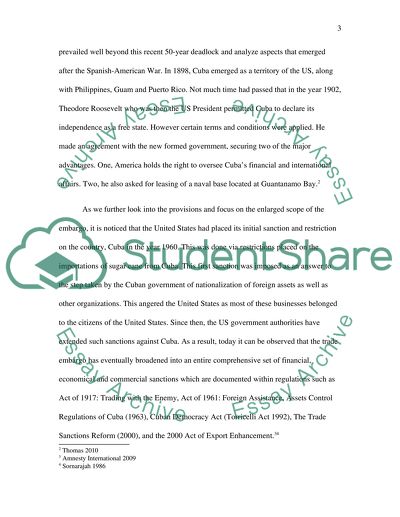Cite this document
(“The United States Embargo on Cuba Research Paper”, n.d.)
Retrieved from https://studentshare.org/history/1393618-the-united-states-embargo-on-cuba
Retrieved from https://studentshare.org/history/1393618-the-united-states-embargo-on-cuba
(The United States Embargo on Cuba Research Paper)
https://studentshare.org/history/1393618-the-united-states-embargo-on-cuba.
https://studentshare.org/history/1393618-the-united-states-embargo-on-cuba.
“The United States Embargo on Cuba Research Paper”, n.d. https://studentshare.org/history/1393618-the-united-states-embargo-on-cuba.


